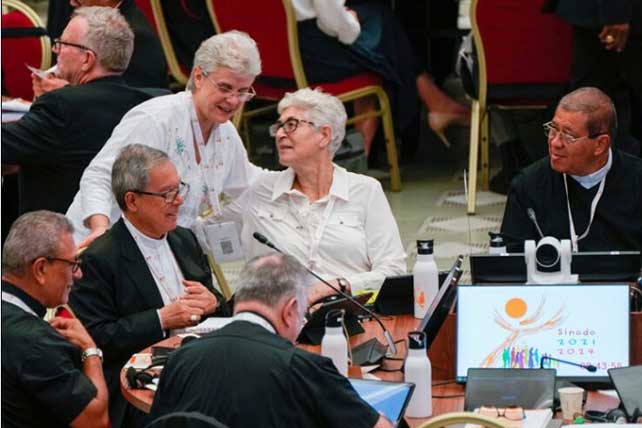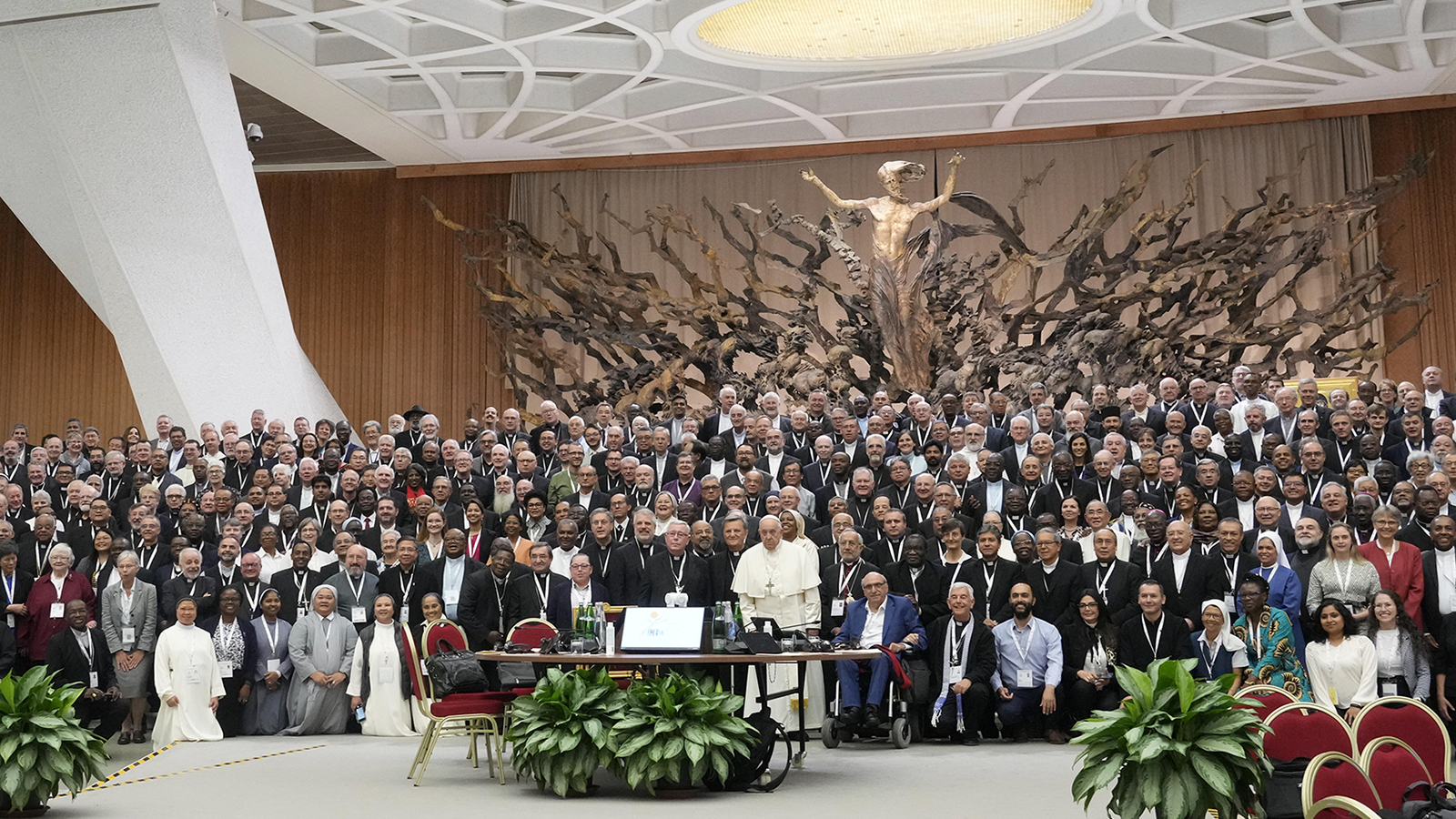VATICAN CITY (RNS) — The Synod on Synodality, Pope Francis’ worldwide consultation of Catholics asking them how they would change the church, failed to yield the tangible results that many reformers had hoped for. A decision to allow blessings for same-sex couples, published months after the synod ended, barely advanced the practice, which has been going on for years in some parts of the church. The likelihood of women being ordained even as deacons seems as farfetched as ever.
But the synod’s organizers at the Vatican say that the now three-year-old process is already changing the face of Catholicism.
When hundreds of bishops and other clergy gathered in October with lay Catholics and a smattering of nuns at the Vatican, they took up an agenda drawn from the consultations in local parishes and dioceses, which showed that many people in the pews were concerned with some of the most controversial issues in the church, from LGBTQ inclusion to female ordination. The small group roundtables yielded boiling discussions, but the final document that emerged at the end of a month, the Instrumentum Laboris, consisted mostly of tepid recommendations.
RELATED: Young Catholics Bring the Spiritual Lessons of the Synod on Synodality Home
But when synod participants meet again at the Vatican in October 2024, “the second session will be different in the sense that it has to achieve a final document that has to make more specific propositions,” said Sister Nathalie Becquart, the first female undersecretary of the Vatican’s Synod office, in a recent interview.
In a deeply polarized church, these propositions will have to strike a balance between proving the efficacy of synodality — “a new way of being church,” synonymous in many minds with inclusivity, transparency and dialogue — and reassuring traditionalists that it is not turning church decision-making into a democracy.
The expectations raised by the process include women’s ordination, broader lay involvement and an opening toward marginalized groups, especially migrants and members of the LGBTQ community.
The Instrumentum Laboris, meanwhile, did not even contain the term LGBTQ for fears that it would be too divisive.
Pope Francis, center, poses for a picture with participants of the Synod of Bishops’ 16th General Assembly in the Paul VI Hall at the Vatican, Oct. 23, 2023. (AP Photo/Gregorio Borgia)
The synod planners must also balance these mixed expectations with the pope’s willingness to exercise his supreme and final authority. Francis has often taken into his own hands matters he regards as important, such as giving approval to the Vatican’s doctrinal department to allow gay blessings. The decision got an only lukewarm welcome from LGBTQ rights groups, while eliciting a statement from Cardinal Fridolin Ambongo Besungu, president of the Symposium of the Episcopal Conferences of Africa and Madagascar, saying that African churchmen will not be blessing gay couples.


